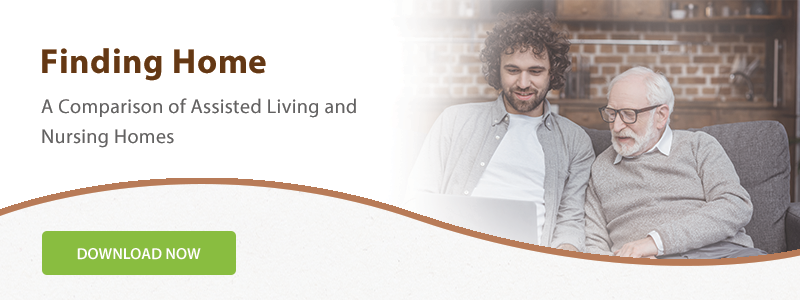Thinking about becoming a caregiver for a senior loved one? At Vista Springs, we're in your corner. In this blog, we’ll talk about some of the responsibilities you might have as a caregiver and provide sources for support.
Common Caregiver Responsibilities
Your responsibilities will depend on the specific needs of your loved one, who may need help with just some tasks on this list or all of the tasks of this list. Here are some of the most common caregiving responsibilities:
- Performing general housekeeping duties, like laundering clothes, vacuuming, sweeping, making the bed, washing dishes, and dusting
- Assisting with errands like scheduling appointments, paying bills, and filling prescriptions
- Providing assistance with dressing to include picking out clothes and hands-on assistance with dressing and undressing
- Supporting medication administration by setting up medications or administering medications according to their provider’s orders
- Assisting with oral cares by putting in dentures or partials, brushing teeth, removing and brushing dentures or partials, swabbing mouth, or applying lip balm; monitoring for new dental problems and coordinating with dentist for prevention and restoration
- Providing mobility assistance with assistive devices if necessary, helping them transfer from bed to chair, chair to toilet, etc., and repositioning them if they are immobile and at risk of pressure ulcers
- Meeting elimination needs by encouraging your loved one to use the restroom, managing incontinence, and providing (or encouraging) perineal cares
- Bathing your loved through bed baths, showers, or baths; offering standby or hands-on assistance for safety and hygiene
- Preparing meals or meal planning and assisting with eating; monitoring for increase or decrease in appetite, malnutrition, or other problems
In families, caregivers often have responsibilities that a traditional caregiver wouldn’t perform. You might be responsible for sharing new information with your siblings or other family members, like changes in the treatment plan, new diagnoses, or changes in the condition of your loved one. In many cases, you might be the transporter, helping your loved one get to and from appointments, the salon, the grocery store, and the pharmacy, to name a few.
We often find that loved ones also serve an important role in the household, perhaps providing lawn care, overseeing the budget, preparing taxes and other important forms, and serving in a companion role in an effort to enrich the lives of their loved ones when social engagements begin to decline.
Resources for Caregivers
Being a caregiver in an informal, family setting can be both rewarding and challenging. At Vista Springs, it’s our goal to support you, the caregiver, as you share yourself and your resources with the people you love. We have a myriad of resources to help.
- A comprehensive guide to asking for help when you need it, in a way that doesn’t create defensiveness among family members or leave you feeling unwilling or ungrateful.
- This discussion on the challenges you face as a part of the sandwich generation, caring for both your parents and your children at the same time (and sometimes feeling like you’re failing at both because it’s simply so much)
- Tips and pointers for self-care in a caregiving role so you can continue to give and do without burning out
- This guide on avoiding caregiver burnout, which impacts as many as 40% of caregivers
- These tips for managing the stress you face as a family caregiver
When to Seek Help
In many families, caring for a loved one in their home works. It gives the younger generation a meaningful way to thank their parents or grandparents for all they’ve done and provides the elder generation with an opportunity to age at home with people they love and trust. However, most families reach a point when their loved one’s needs become more than they can manage at home; perhaps they’re on injected medications, need wound care, or become totally dependent.
In other cases, loved ones begin to experience exhaustion and burnout before needs rise to that level. In that case, it’s also time to consider getting additional help from home health or even a move to a retirement community. In that setting, you become a partner in your loved one’s care rather than handing them off, and they gain access to a qualified care team and a myriad of opportunities for socialization and well-being. For many of our community members, the move is positive and healing.
Find a Vista Springs community near you today!






